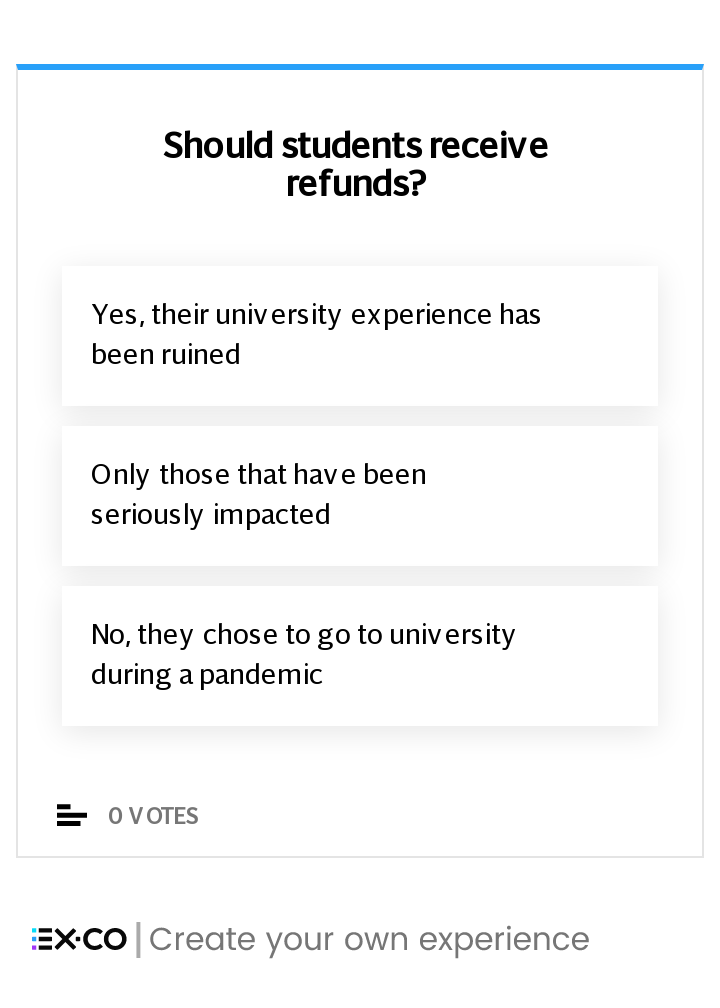Universities could be asked to end face-to-face teaching early to allow students home for Christmas

Universities could be forced to end face-to-face teaching early this term and students told to quarantine in halls in order to go home at Christmas, Gavin Williamson has announced.
The Education Secretary sought to quell fears of students being unable to see their families over the festive period, insisting that “every student” would be able to leave university at the end of term.
However, he said in order to do so some may be required to quarantine beforehand, requiring universities in certain areas to end “in-person learning early” and shift the remainder of the term online.
Mr Williamson said this would only be required for institutions where there were “specific cases” or “specific local circumstances” adding that it would apply to a “very small number of universities.”
His comments suggest that universities based in areas with high infection rates will be asked to stop normal teaching before other parts of the country, although a Whitehall source said this would be clarified in new guidance.
While Mr Williamson did not say where students would be required to isolate, the source indicated they would be asked to do so in their university accommodation.
In a warning shot to vice-chancellors, Mr Williamson also revealed he would be asking the university watchdog to make clear that bonuses should not be handed out where institutions had failed to maintain standards.
It comes after the Office for Students on Monday warned that universities may be forced to issue partial refunds and face regulatory action if they allow standards to slip during the pandemic.
In an update to MPs, Mr Williamson said: “Where there are specific circumstances that warrant it there may be a requirement for some students to self-isolate at the end of term.
“We will be working with the sector to ensure this will be possible, including ending in-person learning early if that is deemed to be necessary.”
He also rejected calls from union leaders and Labour for all universities to switch all teaching to online immediately, arguing that courses such as medicine, dentistry and creative arts required face-to-face contact.
With more than 4,000 students self-isolating across 52 universities, Mr Williamson faced calls from MPs to order partial refunds for students whose learning had been disrupted.
The DUP’s Sammy Wilson said students were being forced to pay “full price” for a “substandard education”, while Tory MP Laura Trott called for vice chancellors to lose their bonuses if they refused to offer discounts.
Responding, Mr Williamson said: “We have an issue of excessive vice chancellor pay and bonuses for quite a long time. I will be asking the Office for Students to look at this and give very strong and clear steers to ensure that there aren’t bonuses going out as a result of this crisis.”
A Whitehall source said he had been referring to universities that failed to uphold high standards during the pandemic, adding that he would take a “dim view” of those that were “dishing out bonuses” despite teaching quality declining.
Pressed on the issue of refunds, Mr Williamson said students should complain to the university ombudsman but that anyone who had failed to receive a satisfactory service was entitled to get money back.
However, he faced a backlash from Labour MPs over accessibility of testing for students, with Kate Green, the shadow education secretary, arguing that the current situation was “predictable and predicted.”

Lucy Powell, whose Manchester Central constituency includes Manchester Metropolitan University, where 1,700 students are currently isolating, accused Mr Williamson of losing “control.”
“What we have seen this week in two halls of residence in Manchester in my constituency I'm afraid just about sums up everything that the Government is getting wrong in handling this crisis,” she added.
"No planning over the summer and foresight when it was obvious that halls of residence would be the main area of risk.
“Confused messages that his own ministers can't even keep a track of, let alone 18-year-olds all arriving in our city from different parts of the country. And a woeful lack of quick testing which could have avoided this situation.”
Echoing her comments, Yvette Cooper, the chair of the Commons home affairs committee, argued that mass testing could avoid the need to force students to self-isolate before Christmas.

 Yahoo News
Yahoo News 
